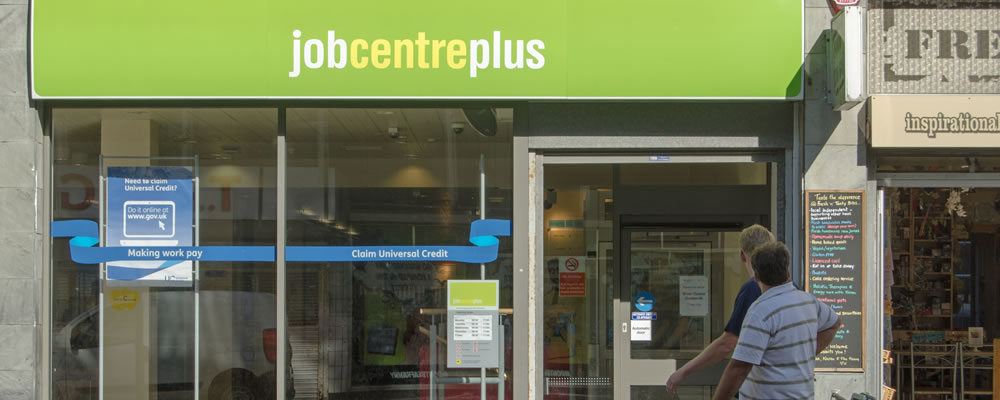Pound to Euro Exchange Rate Edges Away from Worst Levels despite Weaker Wages
Hopes that stronger creation of new UK jobs will lead to stronger economic performance in the coming months have supported the Pound Sterling to Euro (GBP/EUR) exchange rate on Tuesday, despite news that UK wage growth has been slowing.
Last week, a resurgent Euro (EUR) pushed GBP/EUR down from 1.1445 to 1.1388. The pair briefly hit a monthly low of 1.1325 in the middle of the week.
This week so far, GBP/EUR has slipped and continues to trend below the week’s opening levels. However, on Tuesday the pair traded above its worst levels and was closer to the level of 1.1360.
The Pound (GBP) climbed away from its worst levels versus the Euro thanks to news that Britain had created more new jobs in the latest job market report than expected. Jobless claims were also falling in May.
This made investors more hopeful that Britain’s economic performance would improve in the coming months. However, UK wage growth slowed and analysts weren’t as optimistic as some traders.
Pound (GBP) Exchange Rates Higher Despite Slowing Wages
Despite analysts taking relatively cautious stances over the latest UK data, the Pound strengthened slightly against many rivals on Tuesday due to signs that Britain’s job market continued to create new jobs.
Tuesday saw the publication of Britain’s April job market results and May jobless claims figures.
The latest employment change figure was forecast to come in at 110k, but instead printed at 146k indicating that Britain was still making more jobs than expected.
May’s claimant change count came in at -7.7k, indicating that a lot more people were going into work.
The news wasn’t all optimistic though, as Britain’s April wage growth results fell short of forecasts.
UK wages were forecast to have remained at 2.6% including bonuses and 2.9% excluding bonuses. However, the results slowed to 2.5% and 2.8% respectively.
This indicated to analysts at TUC that UK wage growth was running out of steam. According to TUC General Secretary Frances O’Grady:
‘At this rate pay packets won’t recover to their pre-recession levels for years.
We need to speed things up. Extending collective bargaining would boost living standards and help workers get a fairer share of the wealth they create.’
Euro (EUR) Exchange Rate Demand Muted by Surprise Drops in Confidence Readings
Part of the Pound to Euro (GBP/EUR) exchange rate’s Tuesday recovery was caused by a weaker Euro (EUR), as investors sold the shared currency following surprisingly weak business confidence data from ZEW.
ZEW published its June economic sentiment survey results for Germany and the Eurozone overall on Tuesday morning and every major print came in worse than expected.
Germany’s economic sentiment index worsened from -8.2 to -16.1, rather than the forecast -14. The Eurozone figure plunged from 2.4 to -12.6, missing the forecast 0.1.
ZEW’s German current conditions print disappointed too, slowing from 87.4 to 80.6.
The news worsened market concerns that the Eurozone economy had been negatively impacted by global trade jitters, but investors will be anticipating Thursday’s European Central Bank (ECB) policy decision before making any big moves on the shared currency.
Pound to Euro (GBP/EUR) Forecast: Central Bank Speculation Remains in Focus
Britain’s mixed job results had a mixed impact on Bank of England (BoE) interest rate hike bets, so Pound investors will be awaiting major UK ecostats due for publication in the coming days.
Bank of England rate hike bets are most likely to be influenced by Britain’s May inflation results on Wednesday and May retail sales results on Thursday.
If UK inflation comes in lower than forecast, investors will become more concerned that domestic price pressures are waning. This could dampen Bank of England bets and make it more difficult for the Pound to recover.
If Thursday’s retail sales results disappoint too, it could indicate that the rebound in UK economic activity hasn’t been much of a rebound.
As for Euro investors, Wednesday’s Eurozone employment figures and Germany’s May inflation rate could be influential, but markets are highly anticipating the European Central Bank’s (ECB) policy decision on Thursday.
The bank is currently expected to discuss some of its plans for tapering its quantitative easing (QE) scheme towards the end of the year. If the bank shows fresh concerns about trade or business confidence, the Pound to Euro (GBP/EUR) exchange rate could recover.



